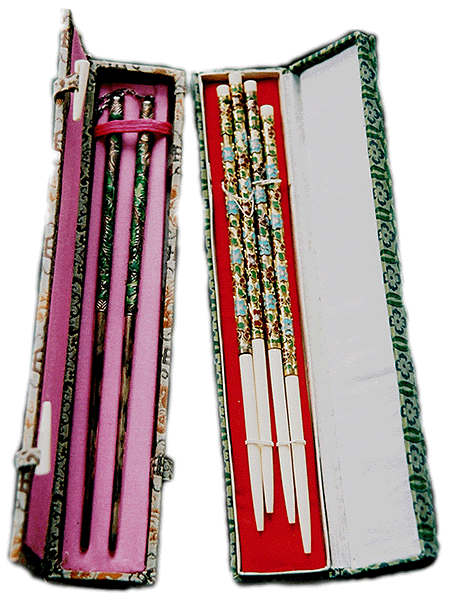|











|
|

Chopsticks (phai-tzi)
Gold, silver, ivory, coral, wood, and even twentieth-century plastics are
available, but plain bamboo chopsticks are cheapest and perhaps best.
Generally the top half is squared, the bottom half rounded and slightly
tapered; average length is about 10 inches, with a 1/4-inch thickness at
the top. Most chopsticks are durable and rarely break in use. Bamboo and
wooden types are used in the kitchen since they can withstand high
temperatures and do not alter the taste of the food. They are used as
eggbeaters, cooking forks, mixing spoons, draining spoons, etc. Ivory
chopsticks are equivalent to our sterling silver formal ware. They must
not become overheated or they will warp and turn yellow or brown. They
should be washed in sudsy, lukewarm water and dried thoroughly.
Food eaten with chopsticks must be fragile enough to be easily
broken into dainty pieces or precut or sliced into segments that can be
picked up easily. Noodles and rice in particular are eaten with
chopsticks. Of the two, the rice is more readily picked up or, more
properly, gently shoved into the mouth directly from the bowl.
 . . |